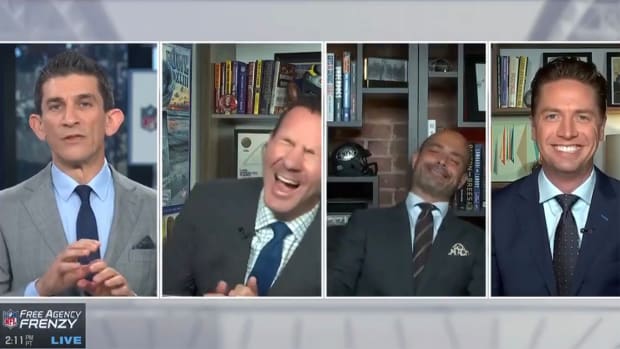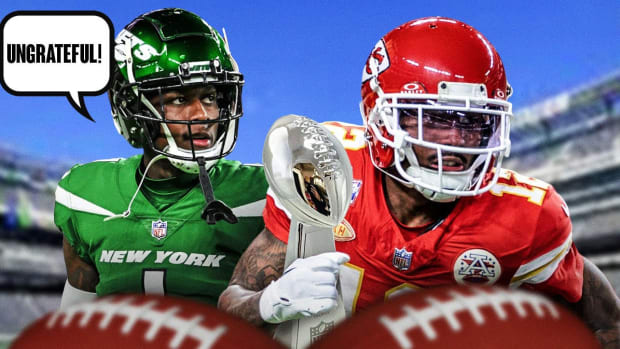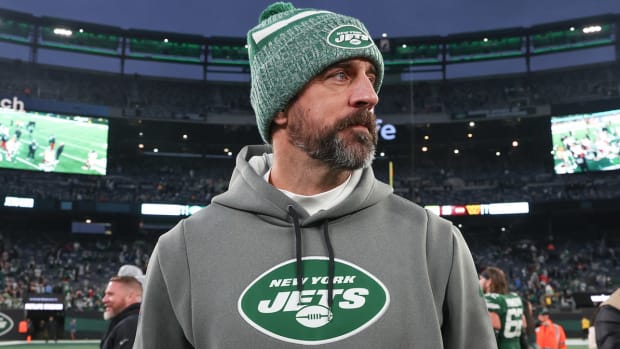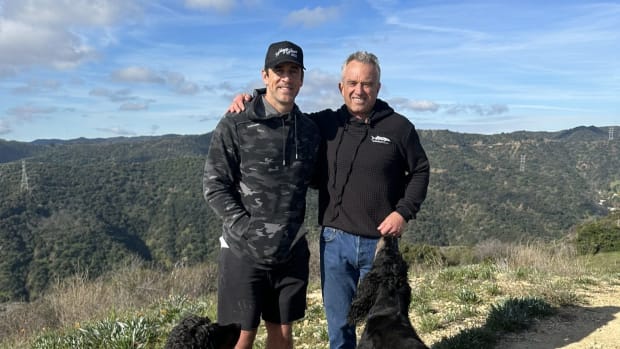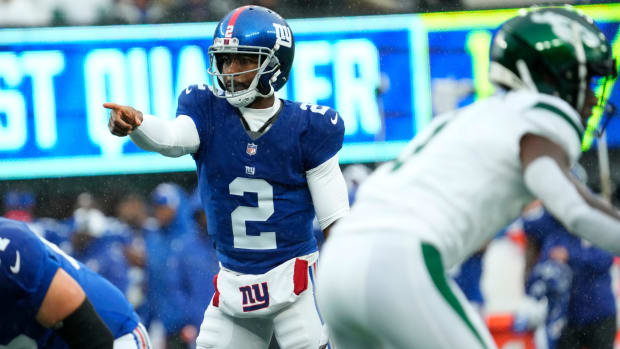SI's New York Jets Mock Draft 6.0: COVID-19 (and pre-NFL free agency edition)
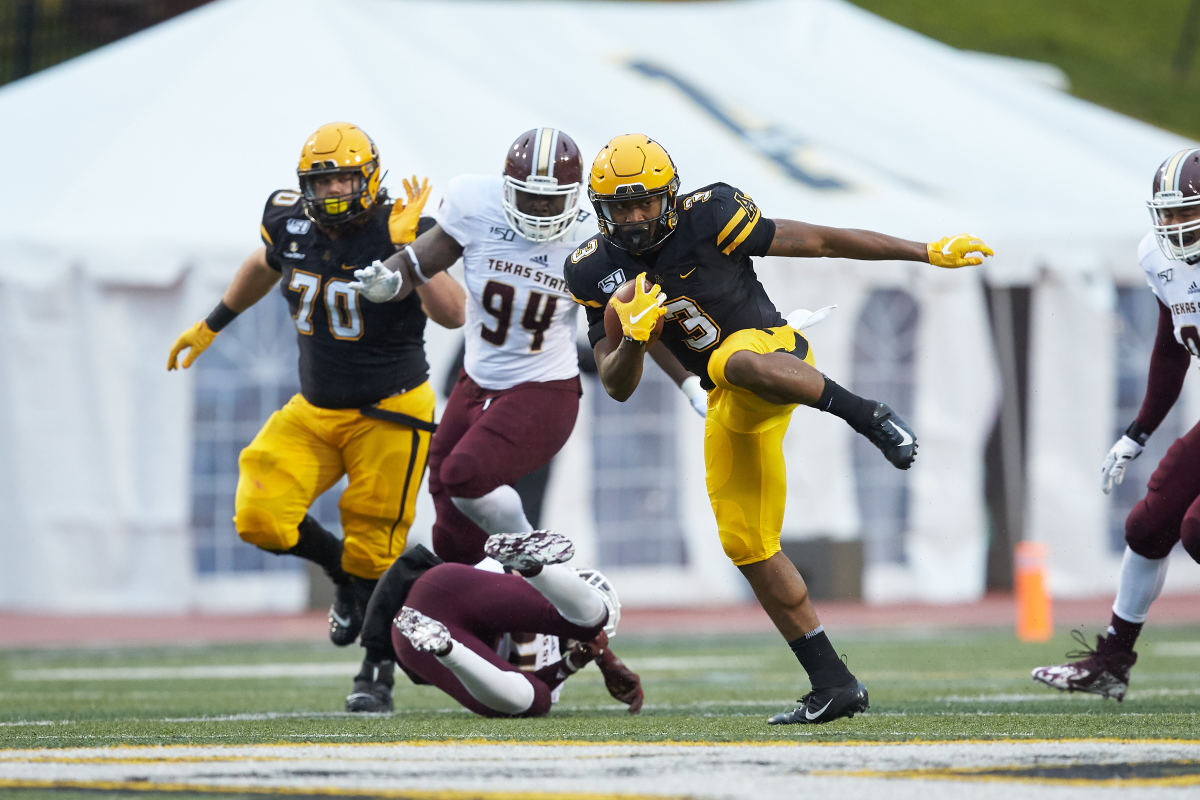
The scouting department might be off the road, the byproduct of COVID-19, but the NFL Draft is still slated to be six weeks. Which means another mock draft is due, this time ahead of free agency.
This is the Jets Mock Draft 137.0 – or at least it fills that way. It works under a few assumptions:
- The Jets will sign one starting offensive tackle and a starting caliber center in free agency.
- They will retain Brian Winters.
- Robby Anderson will be priced out of their valuation and will sign as a free agent elsewhere
And it is ‘just’ the ‘Jets Mock Draft 6.0.’ Whew.
First Round, No. 11
Andrew Thomas, OT (Georgia)
One of the draft’s best offensive linemen finds a perfect fit with the Jets. Free agency will bring in at least one starting tackle (Jack Conklin is the crystal ball prediction) and Thomas could then slot to right tackle, instantly solidifying a line that has been neglected for years.
Why the pick: The Jets need to seriously upgrade at both tackles. Using their first round pick on an instant-starter in Thomas who has played in big games is ideal. His NFL Combine performance showed a player who moves well and has the requisite strength.
Second Round, No. 48
Tee Higgins, WR (Clemson)
After the offensive line, the Jets need to add some talent at wide receiver. Higgins, playing for a powerhouse program, steps in able to contribute right away. He doesn’t make the Jets forget Anderson, but he helps balance the stable of wide receivers.
Why the pick: Some pause was given to K.J. Hamler here but a big target in Higgins (6-foot-4 with a wide radius) is enticing for the offense. Higgins is a really solid player who can help the Jets. He has a tremendous radius which can help franchise quarterback Sam Darnold.
Third Round, No. 68
Bryce Hall, CB (Virginia)
A good-sized cornerback who did well against ACC competition. Physical and strong, Hall is coming off an ankle injury in 2019 or else could have been a second round pick. Tough and aggressive.
Why the pick: The Jets have a big issue at cornerback across the board. Hall is ready to step into the backend immediately as a contributor or possibly even as a starter. He breaks to the ball very well.
Third Round, No. 79
Jonathan Greenard, DE (Florida)
Greenard has good length and can play with his hand in the dirt in the 3-4. Explosive off the line, he isn’t an elite pass rusher but helps the Jets generate something off the edge. A good, solid pick at the end of Day 2.
Why the pick: The Jets need a pass rusher and Greenard helps give them much needed length and the ability to get into the backfield. Played good competition. A year removed from missing the season with a wrist injury, he is a good value pick here.
Fourth round, No. 120
Solomon Kindley, G (Georgia)
A well-built interior offensive lineman, Kindley partnered with the Jets first round pick at Georgia to form as solid duo on the left side of the line. Moves well but might need a season to re-shape his body to be ready to start.
Why the pick: The Jets come into the draft needing to add an offensive tackle and an offensive guard. They got both in this scenario, adding teammates who have played alongside each other. Kindley could and should develop into a long-term starter at guard but like Thomas, might be moving to the right side of the line.
Fifth Round, No. 158
Darrynton Evans, RB (Appalachian State)
Speedy and shifty describes Evans, who has the ability to break plays. Will need to add some bulk over the next year or two to take on a bigger role but has the ability to be a good change of pace back.
Why the pick: Running back wasn’t a huge need for the Jets coming into the draft, but they could use some depth behind Le’Veon Bell. Evans comes into the backfield with the ability to add some speed and contribute on special teams. Ran a 4.41 in the 40 at the NFL Combine.
Sixth round, No. 191
Jaron Bryant, CB (Fresno State)
Another cornerback with good length, Bryant will need some time to develop into a major contributor for the Jets. But he has the potential to become a starter because he is tough and aggressive.
Why the pick: Bryant steps into a cornerback depth chart where he is instantly on the two-deep. While not the most fluid athlete, he is instinctual and aggressive. Helps on special teams as well.

